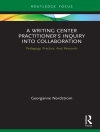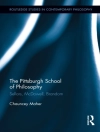This book offers a fresh perspective on the social life of multilingualism through the lens of the important notion of linguistic citizenship. All of the chapters are underpinned by a theoretical and methodological engagement with linguistic citizenship as a useful heuristic through which to understand sociolinguistic processes in late modernity, focusing in particular on linguistic agency and voices on the margins of our societies. The authors take stock of conservative, liberal, progressive and radical social transformations in democracies in the north and south, and consider the implications for multilingualism as a resource, as a way of life and as a feature of identity politics. Each chapter builds on earlier research on linguistic citizenship by illuminating how multilingualism (in both theory and practice) should be, or could be, thought of as inclusive when we recognize what multilingual speakers do with language for voice and agency.
Tabla de materias
Contributors
Kenneth Hyltenstam & Caroline Kerfoot: Foreword: Linguistic Citizenship: Unlabeled Forerunners and Recent Trajectories
Chapter 1. Quentin Williams, Ana Deumert & Tommaso M. Milani: Introduction
Part 1: Linguistic Citizenship as Theory and Practice of Multilingualism
Chapter 2. Lionel Wee: The Myth of Orderly Multilingualism
Chapter 3. Kathleen Heugh: Linguistic Citizenship as a Decolonial Lens on Southern Multilingualisms and Epistemologies
Chapter 4. Ben Rampton, Melanie Cooke and Sam Holmes: Linguistic Citizenship and the Questions of Transformation and Marginality
Part 2: Multilingual Narratives and Linguistic Citizenship
Chapter 5. Lauren van Niekerk, Keshia R. Jansen and Zannie Bock: “I Am My Own Coloured”: Navigating Language and Race in Post-Apartheid South Africa
Chapter 6. Marcelyn Oostendorp: Linguistic Citizenship and Non-Citizens: Of Utopias and Dystopias
Part 3: Linguistic Citizenship for Linguistic Knowledge, Digital Activism and Popular Culture
Chapter 7. Linus Salö and David Karlander: The Travels of Semilingualism: Itineraries of Ire, Impact and Infamy
Chapter 8. Amy Hiss and Amiena Peck: Turbulent Twitter and the Semiotics of Protest at an Ex-Model C School
Chapter 9. Quentin Williams: Remixing Linguistic Citizenship
Part 4: Postscripts: Taking Linguistic Citizenship towards New Directions
Chapter 10. Emanuel Bylund: WEIRD Psycholinguistics
Chapter 11. Don Kulick: The Sociolinguistics of Responsibility
Christopher Stroud: Afterword: Seeding(Ceding) Linguistically: New Roots for New Routes
Index
Sobre el autor
Tommaso M. Milani is George C. and Jane G. Greer Professor of Applied Linguistics, Jewish Studies, African Studies, and Women’s, Gender, and Sexuality Studies. His research aims to understand how power (in)balances are reproduced and contested through meaning-making resources. While identifying strongly with critical discourse analysis, he is not committed to a single theoretical paradigm. In his analyses of language and power he has drawn upon different theoretical frameworks, which include but are not limited to, language ideology, intersectionality, queer theory, southern/decolonial perspectives and theories of affect. Together with Susan Ehrlich, he co-edits the journal Language in Society.












